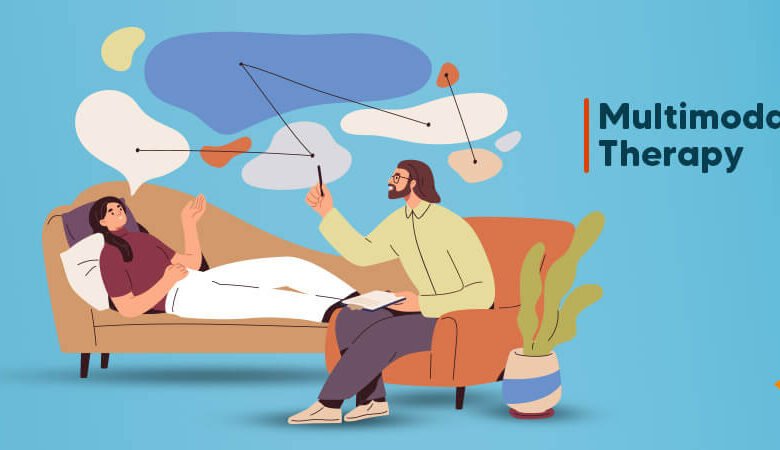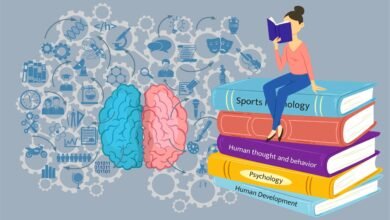What Is Multimodal Therapy?

What Is Multimodal Therapy?
Multimodal therapy (MMT) is a form of comprehensive approach to psychotherapy that typically combines many treatment modalities. 1 In other words, rather than concentrating too narrowly on certain symptoms, the emphasis is more often on treating the whole person.
Also known as “integrative psychotherapy” or “eclectic treatment,” When psychologist Arnold Lazarus realised that clients might benefit from receiving more than one type of therapy at once, he created multi-modal therapy.
Simply put, a “modality” is a form of therapy. This typically refers to various therapy modalities, each of which may concentrate on a different area of the person’s life. Combining pharmacotherapy, or the use of medication, is another example.
Types of Multimodal Therapy
Multimodal therapy allows for the use of a variety of different therapeutic modalities. The most popular types of therapy that might be employed concurrently in a multimodal therapy treatment regimen are listed below.
- Instead of focusing on a patient’s past experiences or current circumstances as the root of their psychological issues or symptoms, cognitive therapy places a greater emphasis on the patient’s thoughts and beliefs.
- Behavior Therapy: Rather than internal feelings or thoughts, which might be challenging to directly examine, behaviour therapy focuses on observable behaviours.
- It has drawn criticism for excluding unconscious mechanisms that could affect behaviour. Nonetheless, it has a long history of success when paired with cognitive therapy and is a very well-researched treatment.
- Psychoanalysis: Also known as “depth psychology,” psychoanalysis aims to comprehend the unconscious mind and how memories and experiences may affect one’s thoughts, feelings, and behaviour.
- It has been used as a type of talk therapy for many years, and there is some evidence that it can be helpful, even if it moves more slowly than other kinds of psychotherapy.
- Developed by Dr. Albert Ellis: rational emotive behaviour therapy (REBT) is founded on the idea that people’s emotions and behaviours can be impacted by their ideas about themselves and others,
- which may or may not be true. In order to enhance emotional reactions and lessen problematic behaviour, the therapist works with the patient to create a more realistic self-view.
- Dialectical behavioural therapy (DBT): DBT, a form of cognitive-behavioral therapy, aims to assist the patient in enhancing their capacity for improved emotional control and distress tolerance.
- Although it has been proven to be effective in treating a variety of diseases, this type of therapy was initially created to treat borderline personality disorder.
- Couples therapy that focuses: on the emotional components of the relationship may be beneficial for certain couples. This type of therapy can improve communication and help couples connect on a deeper level.
- Existential psychotherapy: Patients who feel cut off from themselves or from others may benefit from this type of therapy to help them rediscover their purpose in life. It frequently revolves around the notion that each individual develops their own meaning and purpose.
- Interpersonal psychotherapy (IPT): This form of treatment enables patients to investigate the connections between their mood and other people’s interpersonal relationships,
- particularly those that occur in social settings. It can be used to pinpoint issues that could be causes of mental health problems and to impart interpersonal conflict resolution abilities.
- The concept behind acceptance and commitment therapy (ACT): a form of therapy, is that psychological and emotional problems arise when people refuse to embrace their experiences, reject engaging in life,
- or isolate themselves from others. Patients have the ability to be attentive of their thoughts and feelings without fighting them or completely avoiding them through this type of therapy.
- Training in relaxation: Through methods like yoga, meditation, or deep breathing, people can learn to relax and feel less stressed and anxious. These methods might be self-directed or they can enlist the aid of a therapist.
- Social skills training (SST): is a sort of behaviour therapy that focuses on enhancing social relationships by using social stories, role-playing exercises, feedback, and reward, among other strategies, to treat communication issues.
Techniques of Multimodal Therapy
MMT is a sort of therapy that use a variety of strategies to boost the possibility of behaviour change.
What Multimodal Therapy Can Help With
Depression, anxiety, schizophrenia, personality disorders, bipolar disorder, ADHD (attention deficit hyperactivity disorder), diseases of the autistic spectrum, substance misuse, eating disorders, and psychotic symptoms can all be treated using multimodal therapy.
Benefits of Multimodal Therapy
- Treatment that combines multiple different modalities at once may result in faster patient response.
- By using interventions from various modalities instead of just one, therapists are able to concentrate treatment on the issues that are most pertinent to the patient’s condition and experience.
- When it comes to treating individuals who have a number of physical or mental disorders that could be treated by a variety of therapies, MMT is frequently more economical than alternative treatment choices.
- Because they have greater influence over their treatment, patients who get approaches from various modalities may be more motivated to recover.
Effectiveness of Multimodal Therapy
Yet, evidence suggests that multimodal therapy is likely to be useful for many different diseases, including depression and anxiety.
The therapist’s ability to integrate techniques in a way that makes sense for the patient and their particular needs will determine how effectively the treatment goes.
Things to Consider
The following are some of MMT’s drawbacks:
- There is a chance that therapists won’t apply strategies from all modalities or that they’ll overlook a strategy that could significantly advance the patient’s care.
- To combine them successfully, therapists need to have a wide variety of expertise and experience with numerous psychological techniques.
- It could be challenging for therapists to determine which strategies will complement one another or which patients will benefit from MMT given the paucity of research on its advantages.
- MMT might not be as helpful for patients who are not receptive to employing numerous treatments concurrently.












One Comment